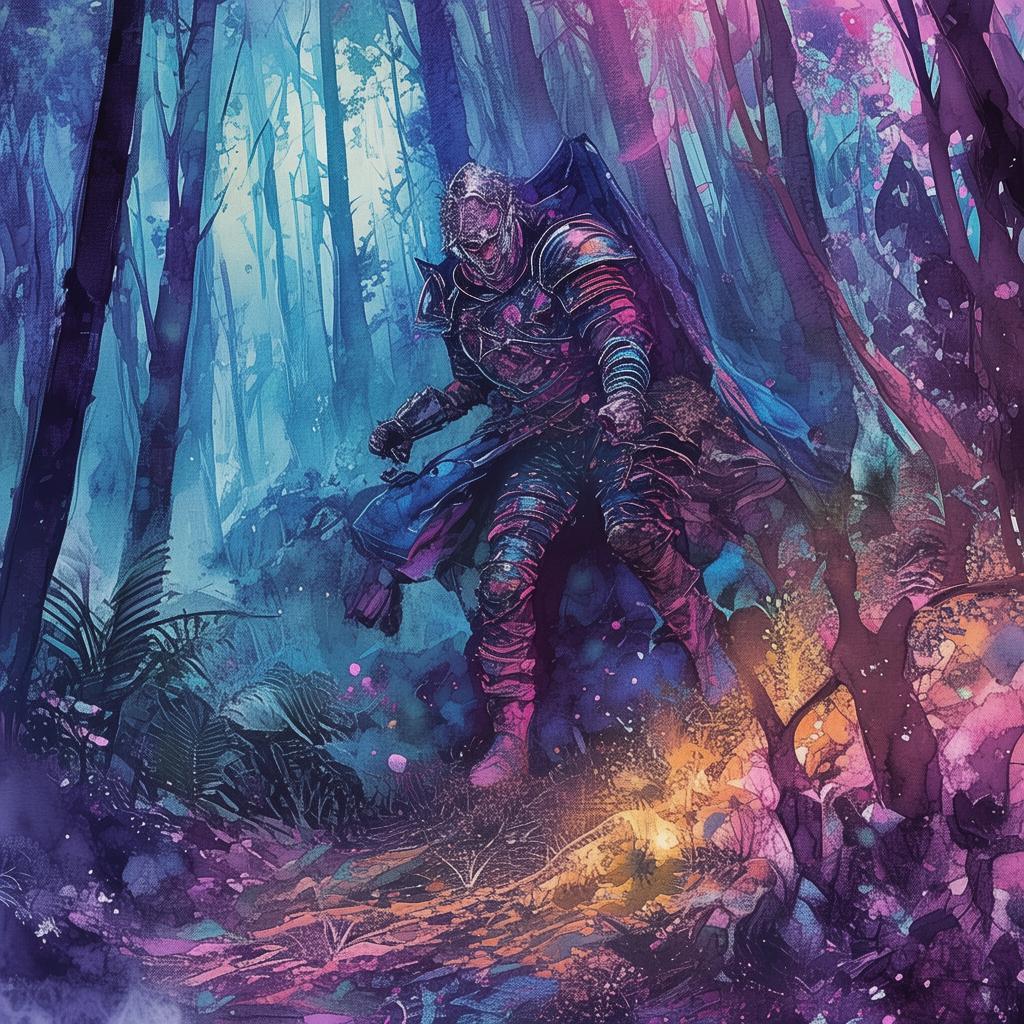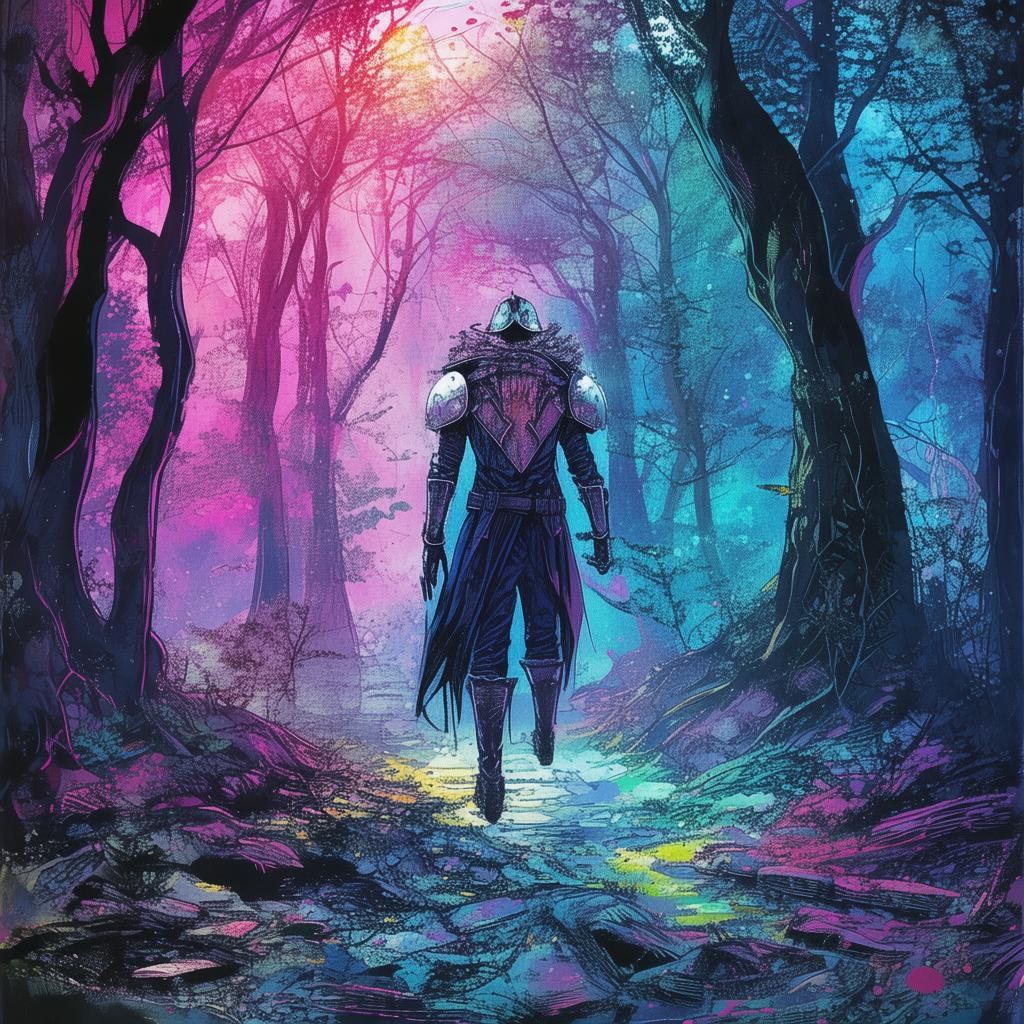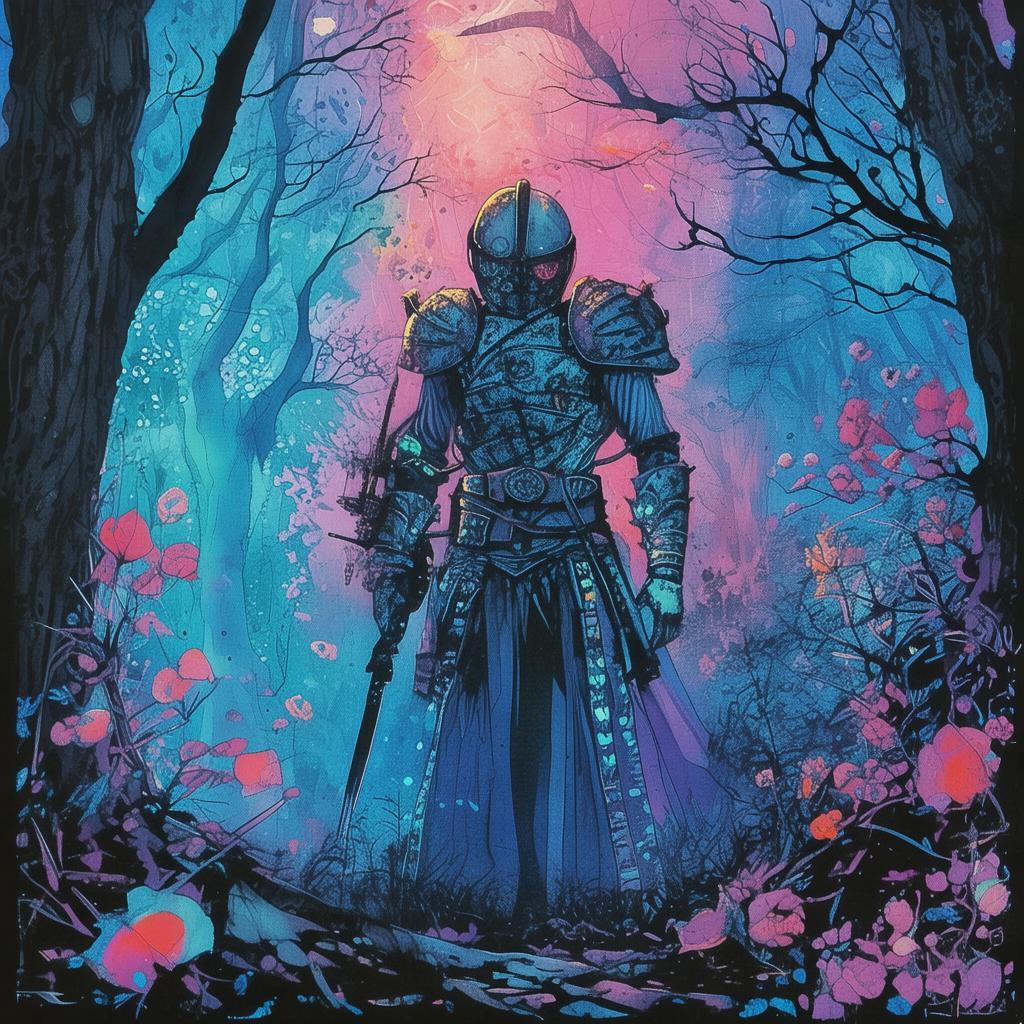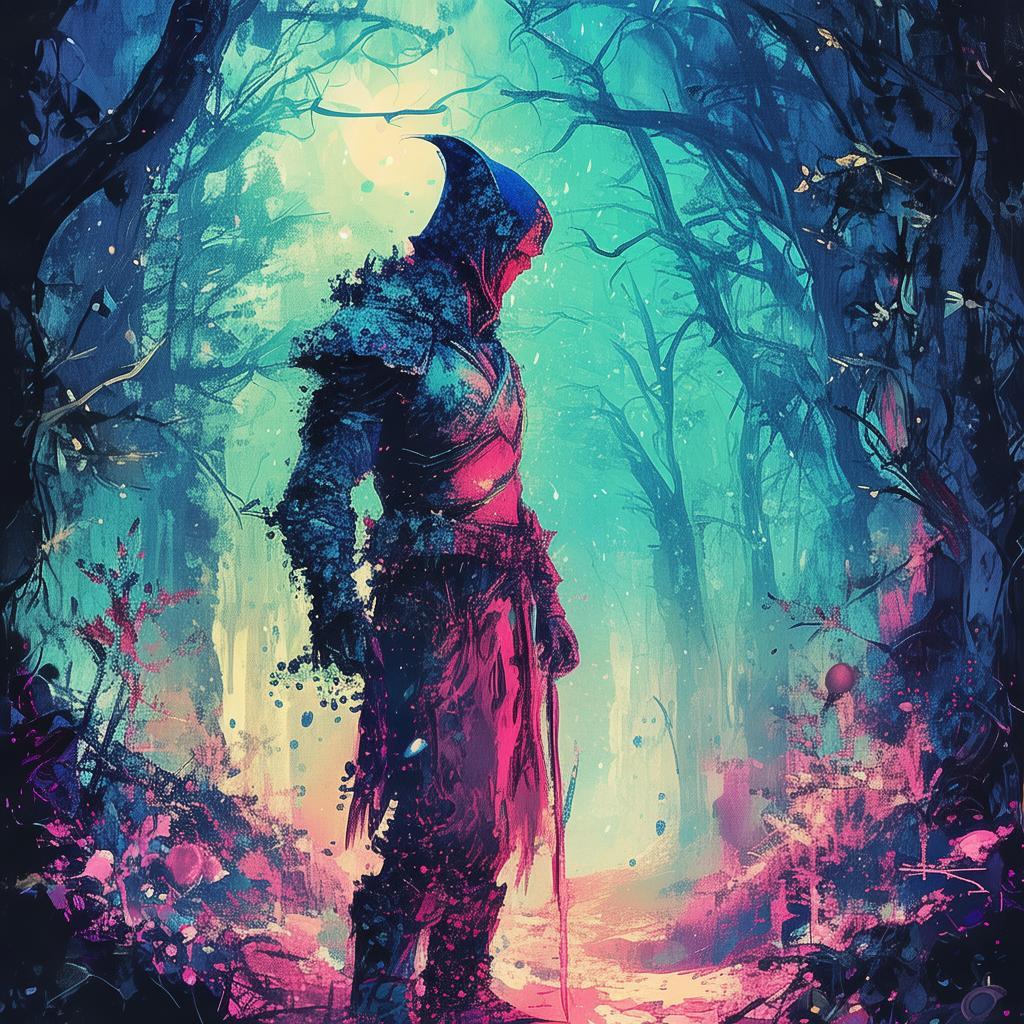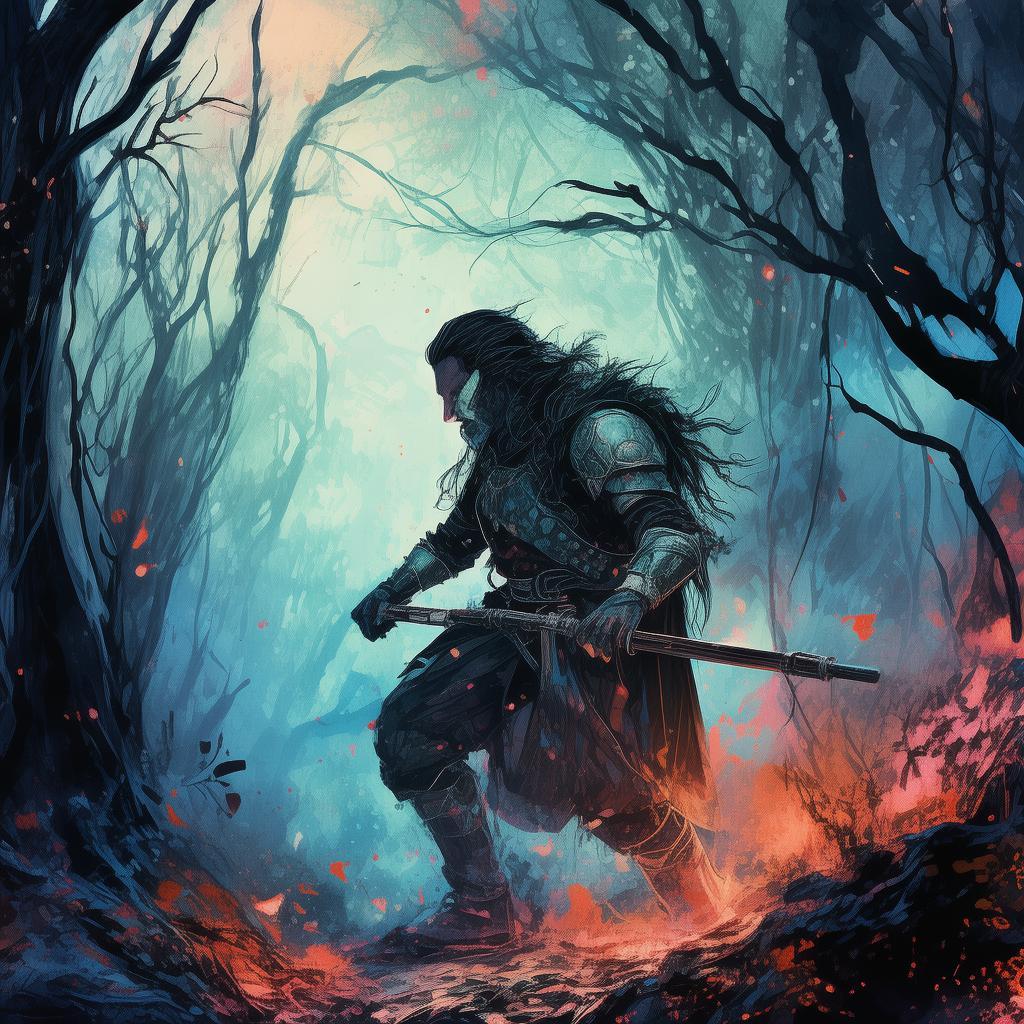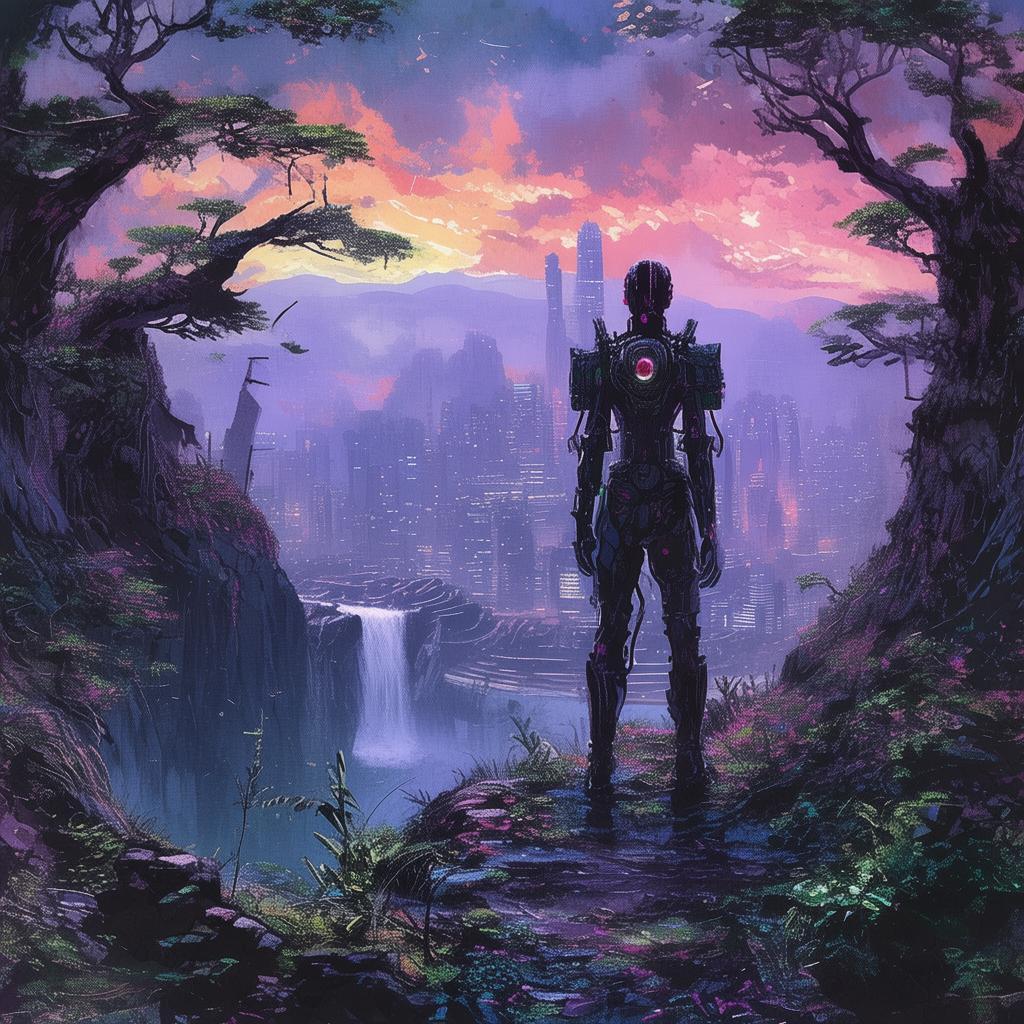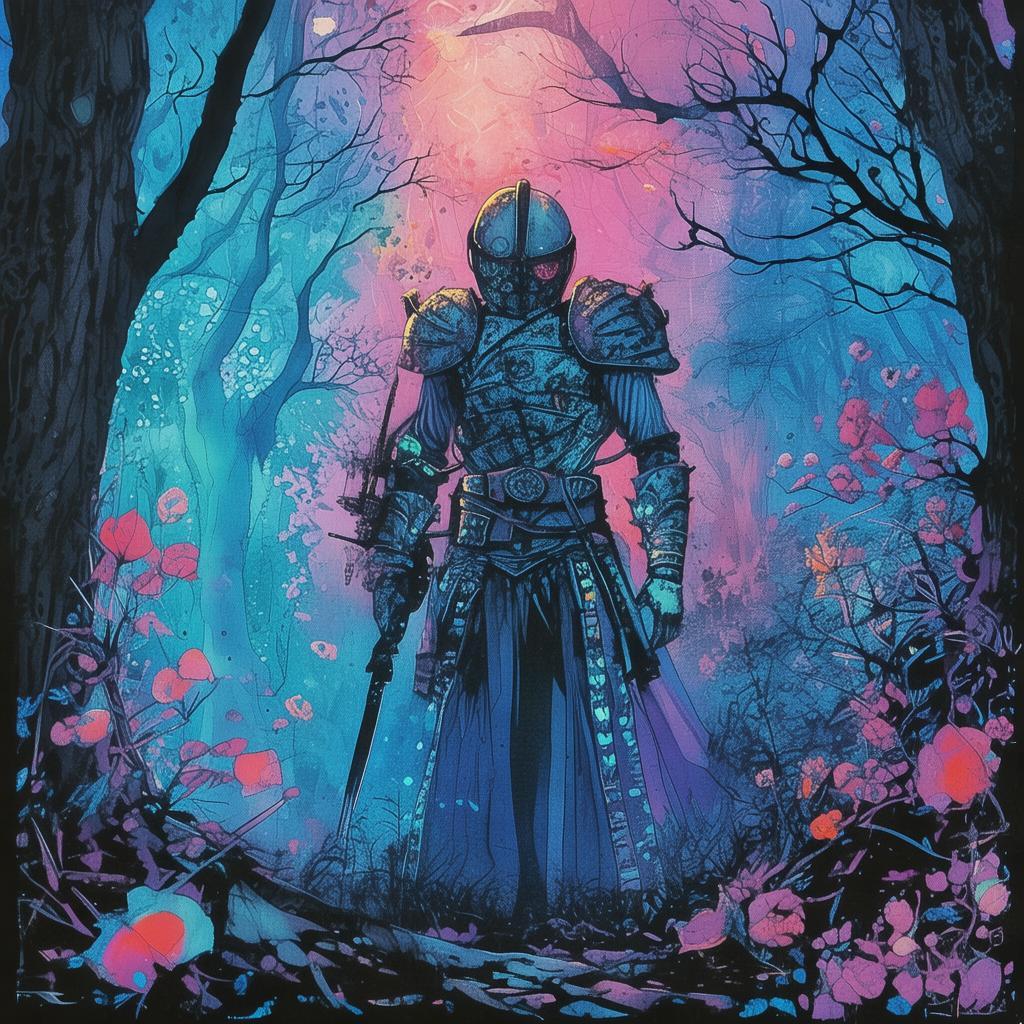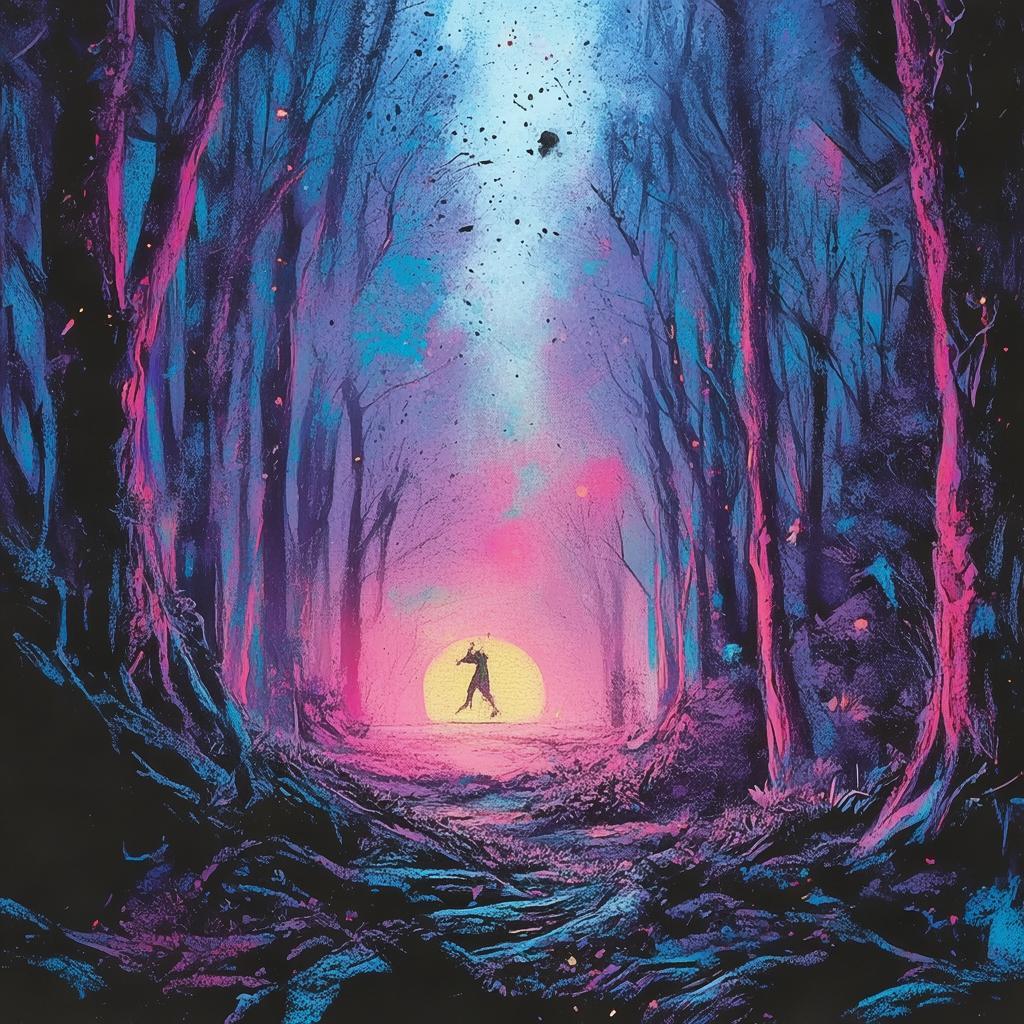The Melody of Despair: A Symphony of Eternity
In the shadowed expanse of the underworld, where the light of the sun was a distant memory and the whispers of the dead echoed through the caverns, there existed a place known as the Abyssal Symphony. This was a realm where the souls of the departed were bound, their spirits trapped in a perpetual dance of sorrow and longing. Within this desolate expanse, there was a composer, known only to the dead, whose music was the very essence of their eternal wails.
His name was Aion, and he had been a master of his craft in the world above. His symphonies were said to have the power to move mountains and the hearts of the listeners. But in death, Aion had discovered that his art was no longer a source of joy but a burden that weighed heavily upon his soul. For in the underworld, his music was the only thing that kept him connected to the world he once knew, but it was also the cause of his eternal punishment.
The Abyssal Symphony was a task set forth by the Fates themselves, a challenge that none had ever succeeded in completing. It was said that the symphony must be composed of the very essence of despair, woven into a tapestry of sound that could only be heard by the souls trapped within the underworld. The composer was to use the melodies of their lost lives, their unfulfilled dreams, and their unspoken regrets to create a symphony that would resonate with the depth of their sorrow.
Aion, however, was no ordinary composer. He was a man who had once known joy and love, and now he was forced to confront the darkness within himself. His greatest fear was not the silence of the underworld but the sound of his own music, which had the power to evoke such intense emotion that it could shatter the very fabric of his being.
One night, as the moonless sky above the underworld was painted in shades of gray and black, Aion found himself at the heart of the symphony, a vast chamber where the echoes of the dead lingered. The walls were adorned with the instruments of his former life: a piano, a violin, a cello, and a flute. Each instrument had been crafted from the bones of the departed, and each note that was struck would carry the weight of a soul's pain.
As he began to play, the music that emerged was haunting, a blend of the most beautiful and the most tragic melodies. It was a symphony that spoke of love lost, of dreams unfulfilled, and of lives cut short. The sound was so powerful that it seemed to pull the very essence of despair from the souls around him, and Aion felt it within himself, a cold, numbing sensation that threatened to consume him.
The Fates, who watched over the underworld, were intrigued by Aion's progress. They had never seen a soul so determined to complete the symphony, even as the music drove him to the brink of madness. They had set this challenge not to test Aion's skill as a composer but to test his resolve, his ability to face his own demons and use them to create something beautiful.
As the symphony progressed, Aion began to see the faces of the departed in his mind's eye, their stories and their sorrows becoming part of his own. He played with a newfound passion, a passion that was born from the very despair that he sought to capture. The music grew more intense, more powerful, and the souls around him began to respond, their spirits lifting slightly as if the music was giving them a taste of life once more.
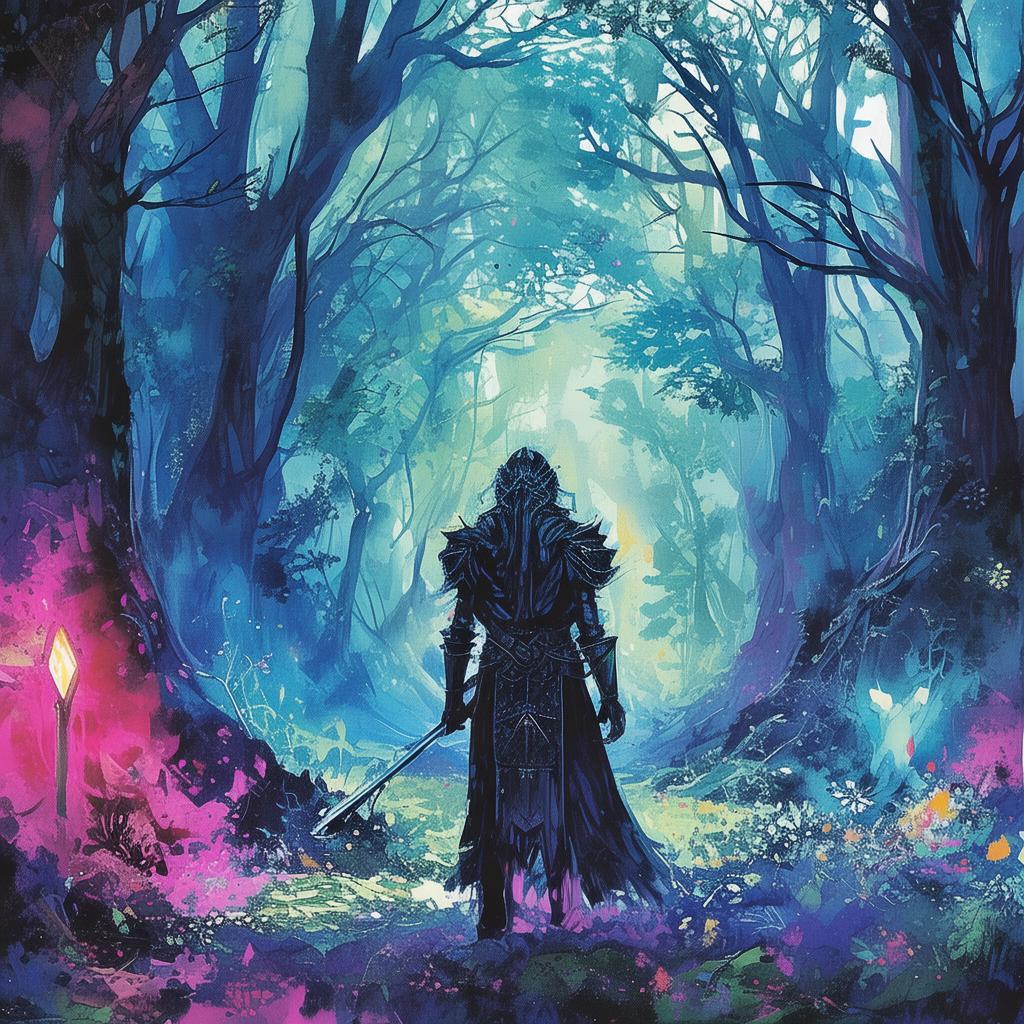
But as the symphony reached its climax, Aion found himself at a crossroads. The music was almost complete, but he could feel the weight of his own despair growing heavier. He had to choose between the music and his own sanity. If he continued, he would be consumed by the very essence of despair that he had been trying to capture, and he would be lost to the underworld forever.
In that moment, Aion looked into the eyes of the Fates, and he saw the compassion in their gaze. They understood his struggle, and they offered him a way out. If he could compose a single note that was not born of despair but of hope, then he would be allowed to leave the underworld and return to the world above.
With a deep breath, Aion reached for the piano and struck a single, clear note. It was a note of hope, a note that spoke of the possibility of redemption, of the chance to start anew. The symphony was complete, and as the final note echoed through the chamber, the Fates nodded in approval.
Aion felt the chains around his soul begin to loosen, and he knew that he had succeeded. He had faced his greatest fear and had used it to create something beautiful. The Abyssal Symphony was a testament to the resilience of the human spirit, a symphony that would resonate with the dead and the living alike.
As the light of the sun finally broke through the clouds above the underworld, Aion felt himself being lifted from his seat. He opened his eyes to see the world as he had never seen it before, a world of color and life. He had faced his own despair and had emerged stronger, a composer who had found a new purpose.
The Abyssal Symphony was not just a piece of music; it was a legend, a story that would be told for generations. And in the depths of the underworld, where the music still echoed, Aion knew that he had found his place among the great composers of the world above, his soul forever bound to the symphony that had saved him.
✨ Original Statement ✨
All articles published on this website (including but not limited to text, images, videos, and other content) are original or authorized for reposting and are protected by relevant laws. Without the explicit written permission of this website, no individual or organization may copy, modify, repost, or use the content for commercial purposes.
If you need to quote or cooperate, please contact this site for authorization. We reserve the right to pursue legal responsibility for any unauthorized use.
Hereby declared.
